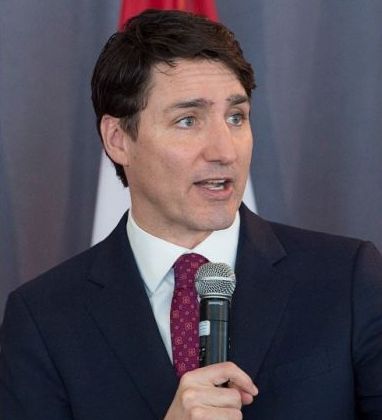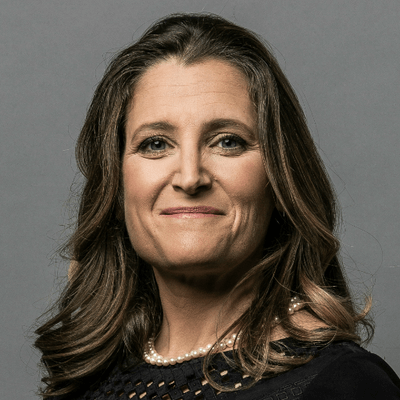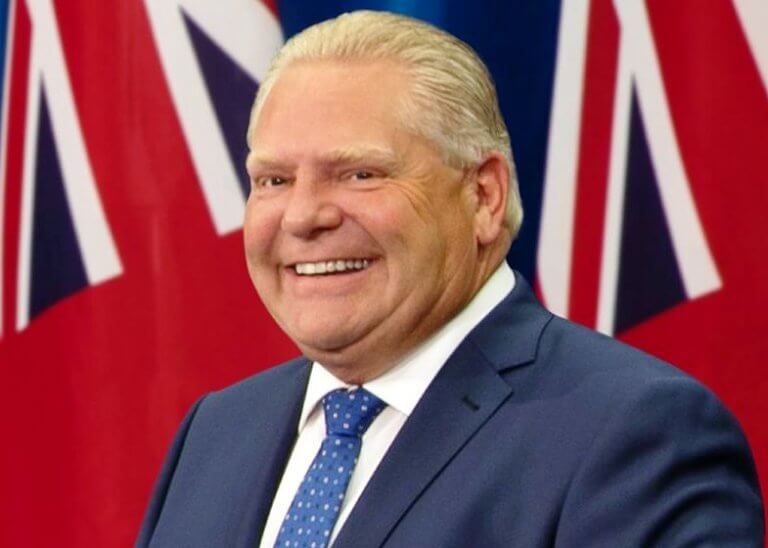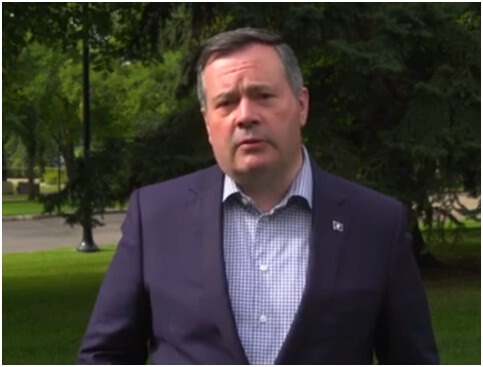
A National School Food Program to set kids up for success: PM Trudeau
The Voice of Canada: Every generation deserves a fair, healthy future – from kids, to parents, to grandparents. It’s why we’re supporting families, one of the many things that we are doing in Budget 2024 to build an economy that helps every generation get ahead.

Children deserve to have the best start in life. But today, nearly one in four children in Canada do not get enough food. That impacts their health and their opportunities to learn and grow. Higher grocery prices are making it hard for parents to afford to put enough good, healthy food on the table. Study after study has shown that when kids eat well, they do better in school. And when kids do well, that sets them up for success. Everyone deserves a fair shot at success, and we believe that fairness means we support each other at every stage of life – and that starts from childhood.
That’s why we’ve made generational investments like the Canada Child Benefit, which provides families with up to nearly $8,000 per child, per year, to provide the essentials their kids need. And since 2015, 650,000 children have been lifted out of poverty, meaning Canada’s child poverty rate has fallen by more than half.
And when it comes to helping kids, especially vulnerable kids, we’re going to keep going.
The Prime Minister, Justin Trudeau, today announced a new National School Food Program. With an investment of $1 billion over five years, the Program, included in Budget 2024, will launch with a target of providing meals to 400,000 more kids every year, beyond those served by existing school food programs. For moms and dads, it will mean the peace of mind that your kids are taken care of and do not go hungry. For kids, it will mean healthy meals – helping them learn, grow, and reach their full potential. This is a generational investment in the future of our kids, and we’re going to work with provinces and territories and Indigenous partners to ensure every child has the food they need.
The Program will be a safety net for the kids who need this support the most. The lack of access to food disproportionately impacts children from lower-income families and from racialized and Indigenous communities. With this program, we’re getting healthy food on the plates of growing kids.
This includes investments for First Nations, Inuit, and Métis communities as well as Self-Governing and Modern Treaty partners, many of whom have some of the highest rates of food insecurity in Canada. Investments will also support capacity building and engagement with Indigenous partners to co-develop culturally appropriate solutions. These partnerships will aim to tackle food insecurity by advancing Indigenous-led solutions and will further our work on reconciliation.

The new National School Food Program will also help provinces, territories, and Indigenous partners expand their existing school food programs to make sure more children across the country can enjoy the healthy meals they need. The Program is good for parents and kids, and it’s good for the economy as well. It will help take pressure off of families and invest directly in the future of our kids, while improving children’s health, education, and well-being.
Last week, we announced measures to protect renters and create more affordable child care spaces. This is on top of our actions to improve health care and dental care, strengthen pensions, and increase access to medications – making sure that, no matter your background or income, you have what you need to be healthy. We all depend on Canada’s future success. And Canada’s success depends on the youngest generations being healthy, doing well, and being set up to succeed.
Quotes
“The National School Food Program is a game changer. The Program will take pressure off of families, invest directly in the future of our kids, and make sure they’re able to reach their full potential – feeling healthy and happy. This is about fairness and doing what’s right for our kids to get the best start in life.”-The Rt. Hon. Justin Trudeau, Prime Minister of Canada

“Since 2015, we’ve reduced child poverty from 16.3 per cent to just 6.4 per cent in 2021 – lifting 650,000 kids out of poverty. Today, the rising price of groceries is making it tough for families, especially Millennial parents, to afford the food their kids need. To make sure every kid gets their fair chance at a great start in life, we’re launching a $1 billion National School Food Program to help another 400,000 kids get the food they need to thrive.”-The Hon. Chrystia Freeland, Deputy Prime Minister and Minister of Finance
“We’re creating a National School Food Program because kids learn better on a full stomach. This Program will have an incredible impact, supporting parents with the higher cost of groceries, and giving children every opportunity to learn, grow, and reach their full potential.”-The Hon. Jenna Sudds, Minister of Families, Children and Social Development
Quick Facts
- The Government of Canada’s Budget 2024 will be tabled in the House of Commons by the Deputy Prime Minister and Minister of Finance on Tuesday, April 16, 2024.
- In recent days, the Prime Minister announced new action in advance of Budget 2024 to ensure fairness for every generation. Budget 2024 will:
- Restore generational fairness for renters, particularly Millennials and Gen Z, by taking new action to protect renters’ rights and unlock pathways for them to become homeowners.
- Save money for more families and help more moms return to their careers by building more affordable child care spaces and providing training to early childhood educators across Canada.
- Nearly one in four children do not get enough food, and that has a real impact on their opportunities to learn and grow. According to studies, students who consistently consumed a nutritious breakfast attained higher grades in reading, math, and science compared to their peers who seldom or never did.
- Evidence shows that school meal programs act as social equalizers. They are also part of a comprehensive approach to equity and support for children and their families. Their benefits include:
- reducing hunger, food insecurity, and health inequities;
- supporting students’ attendance, academic outcomes, and achievement;
- supporting families by reducing food costs and the time required to prepare school lunches; and,
- supporting local farmers, local economies, as well as sustainable food systems and practices.
- To give every child the best start in life, the federal government is also:
- Giving families more money through the Canada Child Benefit to help with the costs of raising children and make a real difference in the lives of kids in Canada. The Canada Child Benefit, which is providing up to $7,437 per child in 2023-24, is indexed annually to keep up with the cost of living and has helped lift more than half a million children out of poverty since its launch in 2016.
- Delivering an early learning and child care system across all provinces and territories, which has already cut fees for regulated child care to an average of $10-a-day or less in over half of all provinces and territories, and by 50 per cent or more in all others.
- Improving access to dental health care for children under the age of 12 through the Canada Dental Benefit, and soon for children under 18 with the Canadian Dental Care Plan, because no one should have to choose between taking care of their kids’ teeth and putting food on the table.



